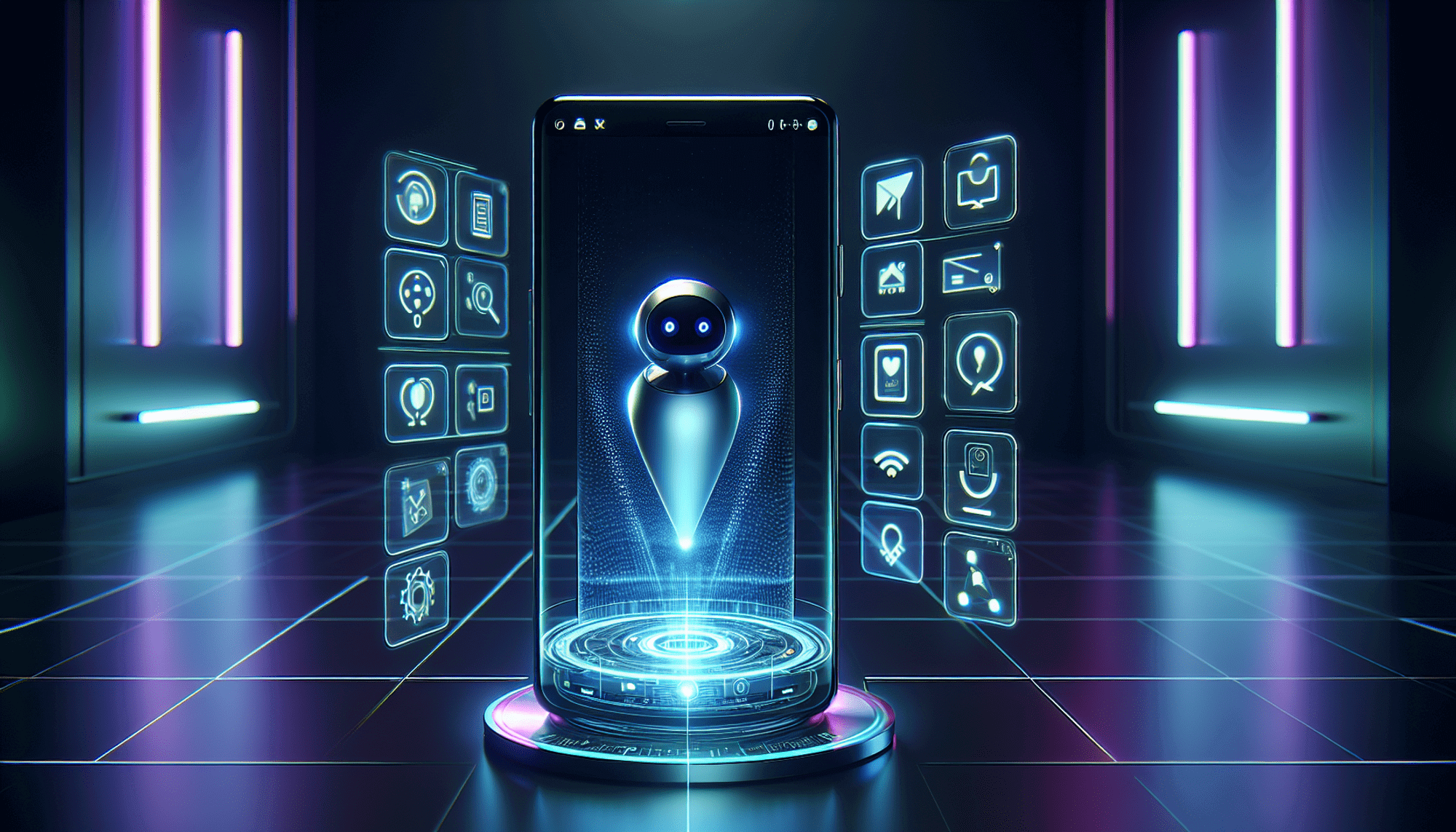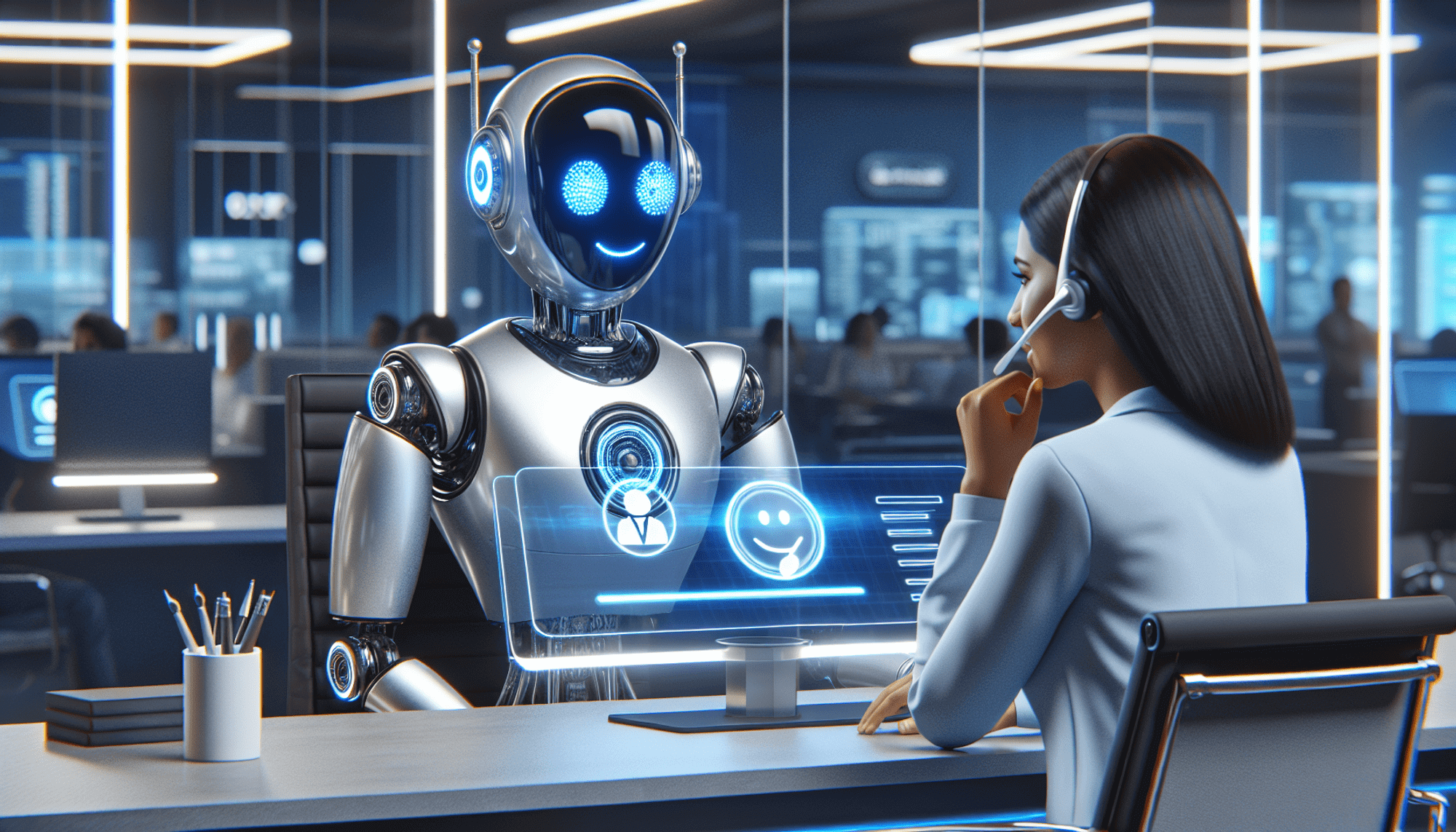






Table of Content:
Replace Call Center with AI: Streamlining Customer Service for the Future

In today's rapidly evolving technological landscape, businesses are constantly seeking ways to optimize their operations and enhance customer satisfaction. One area that has seen significant transformation is customer service, with traditional call centers gradually being replaced by artificial intelligence (AI) solutions.
This paradigm shift offers numerous benefits, such as increased efficiency and improved customer satisfaction, but also brings forth challenges that must be addressed.
By understanding the evolution of customer service, harnessing the power of AI, and preparing for future trends, businesses can navigate the AI revolution and streamline their customer service for the future.
Understanding the Shift from Traditional Call Centers to AI
The Evolution of Customer Service
Customer service has come a long way, transitioning from the early days of in-person interactions to the advent of call centers. In the past, customers would have to physically visit a store or office to seek assistance or resolve any issues they had. This method of customer service had its limitations, as it required customers to be present at a specific location during specific hours.
Call centers revolutionized customer service by centralizing support and enabling businesses to handle large volumes of inquiries. With the introduction of call centers, customers could now reach out for assistance through a phone call, eliminating the need for physical presence. This shift made customer service more accessible and efficient, as businesses could dedicate teams of agents to handle customer inquiries.
However, call centers often face challenges, including long wait times, agent burnout, and limited availability. Customers would often find themselves waiting on hold for extended periods, leading to frustration and dissatisfaction. Agents, on the other hand, would experience high levels of stress due to the constant influx of calls and the pressure to meet customer demands. Additionally, call centers typically operate during specific hours, leaving customers without support outside of those times.
The Role of AI in Modern Customer Service
These limitations have paved the way for AI technology to step in and reshape the customer service landscape. AI is revolutionizing modern customer service by offering innovative solutions that streamline operations and enhance customer experiences. Through the use of advanced algorithms, machine learning, and natural language processing, AI-powered chatbots and virtual assistants can handle customer inquiries with speed and accuracy.
AI systems are designed to understand customer needs and provide relevant information, making them valuable assets for businesses. These systems can even go a step further by solving common issues independently, reducing the need for human intervention. With AI, businesses can improve their responsiveness and provide round-the-clock support to customers, eliminating the limitations imposed by traditional call centers.
Moreover, AI-powered chatbots and virtual assistants can handle multiple inquiries simultaneously, ensuring that customers do not have to wait in long queues. This not only enhances the customer experience but also reduces agent burnout, as they can focus on more complex and specialized tasks. AI technology also enables businesses to gather valuable customer data and insights, allowing them to personalize interactions and tailor their services to individual needs.
Furthermore, AI can assist businesses in predicting customer behavior and identifying patterns, helping them proactively address potential issues before they arise. This proactive approach to customer service can significantly improve customer satisfaction and loyalty.
In conclusion, the shift from traditional call centers to AI-powered customer service is driven by the need for improved efficiency, accessibility, and customer satisfaction. AI technology offers businesses the opportunity to provide faster, more personalized, and round-the-clock support to their customers. As AI continues to evolve, it is expected to play an even more significant role in shaping the future of customer service.
The Benefits of AI in Customer Service
Customer service is a critical aspect of any business, and with the advancements in technology, AI has emerged as a game-changer in this field. AI, or Artificial Intelligence, has revolutionized customer service by offering a range of benefits that enhance efficiency, productivity, and customer satisfaction.
Increased Efficiency and Productivity
One of the key benefits of AI in customer service is the significant increase in efficiency and productivity. AI-powered chatbots can handle multiple inquiries simultaneously, reducing wait times and ensuring prompt responses. These chatbots are equipped with natural language processing capabilities, allowing them to understand and respond to customer queries in real-time. By automating routine tasks, such as providing basic information or guiding customers through simple processes, AI liberates customer service agents from repetitive tasks. This enables them to allocate their time and skills more strategically, focusing on more complex issues that require human intervention. As a result, businesses can streamline their customer service operations, improving response times and overall customer experience.
Furthermore, AI-powered systems can analyze large volumes of customer data to identify patterns and trends. This data analysis helps businesses gain valuable insights into customer behavior, preferences, and pain points. Armed with this information, customer service teams can proactively address customer needs, anticipate potential issues, and provide personalized solutions. By leveraging AI algorithms, businesses can optimize their customer service processes, ensuring that each interaction is efficient and tailored to the individual customer's needs.
Improved Customer Satisfaction
In the age of instant gratification, customers expect quick and personalized responses to their inquiries. AI-powered customer service solutions excel in meeting these expectations. By leveraging AI algorithms, businesses can provide personalized recommendations and tailored solutions, creating a seamless and engaging customer experience. For example, AI-powered chatbots can analyze customer preferences and purchase history to offer relevant product recommendations. This level of personalization fosters customer loyalty and boosts overall satisfaction.
Moreover, AI-powered systems can learn from customer interactions, continuously improving their responses and understanding of individual preferences. Through machine learning algorithms, these systems can analyze customer feedback, identify areas for improvement, and adapt their responses accordingly. This iterative learning process ensures that the AI-powered customer service solutions become more accurate and effective over time. As a result, businesses can provide consistently high-quality customer service, leading to increased customer satisfaction and loyalty.
In conclusion, AI has transformed customer service by offering increased efficiency, productivity, and improved customer satisfaction. By automating routine tasks and providing personalized solutions, AI-powered systems optimize customer service operations and enhance the overall customer experience. As businesses continue to embrace AI technology, the benefits of AI in customer service will only continue to grow.
Challenges in Implementing AI in Customer Service
Overcoming Technical Difficulties
As with any technological implementation, integrating AI into customer service comes with its own set of challenges. Technical difficulties, such as system compatibility and data integration, need to be addressed to ensure a smooth transition. Businesses must carefully choose AI solutions that align with their existing infrastructure and are capable of integrating seamlessly with their customer service platforms. Robust testing and thorough training of AI systems can help overcome these hurdles.
Addressing Customer Concerns and Trust Issues
While AI-powered customer service solutions offer significant advantages, some customers may still have concerns regarding the reliability and accuracy of these systems. It is crucial for businesses to be transparent about AI implementation and address customer trust issues proactively. Clearly communicating the role of AI and human involvement in customer service can help build confidence and trust in the technology. Additionally, ensuring data security and privacy measures are in place can further alleviate customer concerns and solidify trust.
Future Trends in AI for Customer Service
Predictive AI for Proactive Customer Service
The future of AI in customer service lies in its ability to go beyond reactive support and enable proactive service. Predictive AI algorithms can analyze customer data, identify patterns, and anticipate customer needs before they even arise. By providing proactive recommendations, businesses can enhance the customer experience, further strengthening customer loyalty and satisfaction.
The Role of AI in Personalizing Customer Experience
Personalization is key to delivering exceptional customer experiences. AI solutions can analyze vast amounts of customer data, enabling businesses to understand individual preferences and deliver personalized recommendations and solutions. From personalized product suggestions to tailored communication, AI-powered customer service can create a more intimate and bespoke experience for each customer.
Preparing Your Business for the AI Revolution
Steps to Transition from Call Centers to AI
To successfully transition from traditional call centers to AI-powered customer service, businesses must follow a strategic process. This includes evaluating their current customer service needs, identifying suitable AI solutions, and ensuring seamless integration and training. Additionally, businesses must invest in the continuous monitoring and improvement of their AI systems to ensure optimal performance and customer satisfaction.
Training Staff for the AI-Driven Customer Service Environment
While AI technology is capable of handling a significant portion of customer inquiries, human interaction remains essential. Training staff to work alongside AI systems and leveraging their human expertise can further enhance customer experiences. Additionally, providing ongoing training and upskilling opportunities can help employees adapt to the changing customer service landscape and embrace the AI revolution.
The customer service landscape is evolving, and businesses must adapt to meet rising expectations. By replacing traditional call centers with AI-powered solutions, businesses can streamline their customer service processes, increase efficiency, and improve customer satisfaction. While challenges exist, such as technical difficulties and customer trust, these can be overcome through strategic planning and open communication. By embracing emerging trends and preparing their workforce for the AI revolution, businesses can pave the way for a future of personalized, proactive, and efficient customer service.










